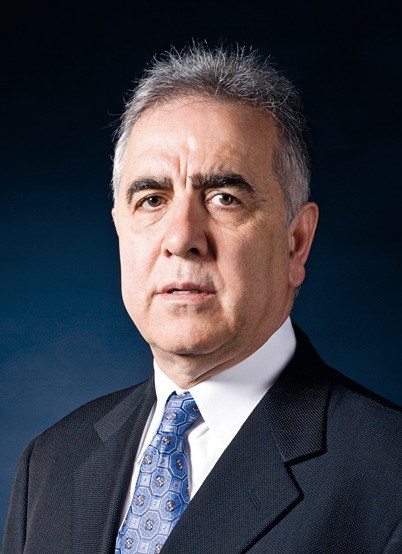The Turkish government got a big slap in the face last week when the United Nations General Assembly overwhelmingly voted to turn down its application for a Security Council seat. In effect, the international community was rejecting Turkey’s hostile policies both at home and abroad.
Turkey’s new Foreign Minister Mevlut Cavusoglu and Prime Minister Ahmet Davutoglu had arrogantly predicted securing the prestigious seat for their country. The night before the vote, Cavusoglu had hosted a posh party for UN Ambassadors at the world famous Waldorf Astoria Hotel in New York City.
After spending several days in New York to lobby personally the UN delegates, Foreign Minister Cavusoglu optimistically told the media: “We think all our nice efforts will, with the grace of God, be reflected onto the ballot tomorrow. Of course, this is a vote and all kinds of results may come out. But, we believe, God permitting, that we will get the result of the work we put in.”
Prime Minister Davutoglu was equally optimistic that Turkey would score a “historic victory.” Just two days before the UN vote, he proudly announced: “If we are elected, and we believe it’s a great possibility, we will be the first country in the world to be elected for a second time, after a five-year break. This shows Turkey’s importance.”
Unfortunately for the Turkish leaders, their expectations did not come true. Despite Cavusoglu’s intensive lobbying efforts and earnest wish for divine intervention, only 60 out of 193 UN General Assembly member states voted for Turkey, while its rival, Spain, received 132 votes, winning a two-year term as a non-permanent member of the Security Council.
Why did Turkey lose in 2014 more than half the 151 votes it received in its successful bid for a Security Council seat in 2008? Here are the key reasons for Turkey’s failure to get elected this time around:
— The vigorous campaign by a large number of countries against Turkey’s membership: Armenia, Cyprus, Egypt, Greece, Israel, Syria, and Saudi Arabia, among others.
— President Erdogan’s ongoing acrimonious feud with powerful Turkish Muslim cleric Fethullah Gulen, resulting in loss of General Assembly votes for Turkey from several African countries, where Gulen’s followers have an extensive presence. This is a major shift from 2008, when Gulen supporters had secured a large number of votes for Turkey.
— Turkish leaders’ poor judgment of deciding to reapply so soon after getting elected to the Security Council in 2009-2010. Turkey’s reelection would have deprived other countries from serving in that august UN body.
— Davutoglu’s self-aggrandizing neo-Ottoman yearnings had antagonized most Middle Eastern countries, turning his policy of “zero problems with neighbors” into zero neighbors without problems! Pew Research Center’s survey confirms that Turkey’s dismal standing throughout the Middle East has sunk to an all-time low.
— Erdogan’s autocratic rule at home, including the bloody quelling of protests at the Gezi Park, jailing journalists, and blocking Twitter and facebook. His dismissive words, “I don’t care what the international community will say,” had alienated countless people around the world. The vote against Turkey was UN members’ rebuke of Erdogan. Most delegates walked out of the hall during Pres. Erdogan’s pompous speech at the UN General Assembly in September.
— Tense relations with the United States and Western Europe over Turkey’s refusal to support the war against ISIS, and not defending Kurdish civilians who are being massacred by foreign Jihadists at a stone’s throw from the Turkish border. As a result, influential commentators called for Turkey’s expulsion from NATO and rejection of its application for membership in the European Union.
— Displeased with Turkey’s antagonistic stand, Pres. Obama sent a lowly charge d’affaires of the US Embassy in Ankara to attend Erdogan’s presidential inauguration on August 28.
By ignoring all these legitimate reasons for Turkey’s failure to win the Security Council seat, Foreign Minister Cavusoglu falsely attributed his country’s defeat to its reluctance to abandon “its values for the sake of getting more votes.” This ridiculous statement is made by the Foreign Minister of a country that has been pouring millions of dollars into the coffers of tiny island states around the world and poor African countries to buy their UN General Assembly votes.
Finally, the failure to gain a Security Council seat limits Turkey’s ability to exploit the powerful UN body to undermine the worldwide commemorative events next year on the Armenian Genocide Centennial.


